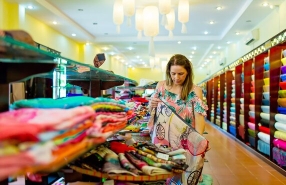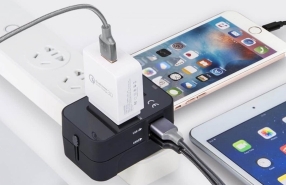How To Deal With Street Vendors And Bargaining In Vietnam ?

Vietnam, with its bustling streets, cozy street vendors, and colorful markets, is a true paradise for discovery and bargain seekers. Whether in Hanoi or Ho Chi Minh City, haggling is an integral part of the local experience. Learning to bargain in Vietnam not only helps you get better prices, but also fosters genuine interactions with local sellers. Knowing how to haggle in Vietnam requires a bit of practice: you have to remain smiling, respectful and not hesitate to leave if the price is not suitable. It’s all about finding the right balance between respecting local customs and being smart with your spending. To succeed, it is useful to prepare in advance by consulting some shopping tips in Vietnam, especially on average prices, ideal hours to buy or reactions to avoid.
In short, bargaining is much more than just a commercial gesture: it is a way to immerse yourself in Vietnamese culture and live every moment on site to the fullest. And Autour Asia, as a travel agency in Vietnam, will help you better understand these cultural codes and enjoy your purchases while respecting Vietnamese traditions.
How to bargain in Vietnam ?
I. Why do we need to bargain in Vietnam?
In Vietnam, bargaining is a daily habit, much more than just a commercial act. It is normal to haggle in Vietnam for vegetables, clothes or souvenirs. It's not just a question of price: it's also a human exchange with street vendors, who are an integral part of the Vietnamese social fabric. A smile, a little humor, and you're done. With the development of tourism, some vendors may inflate prices for foreigners. It is therefore better to know the rules of the game. Bargaining is the art of reaching a fair deal, ideally close to the real market value of an item. By following a few shopping tips in Vietnam, you can avoid unpleasant surprises while having a more authentic experience. Ultimately, bargaining is a way to immerse yourself in everyday Vietnamese life.

Bargaining in Vietnam is also about managing your budget wisely without missing out on experiences. This allows you to buy smartly, but above all to create a link with the locals. The street turns into a place for friendly encounters, shared smiles, and sometimes even hearty laughter. Several blogs share useful Vietnam negotiation tips to recognize a good price or know when to walk away in style. And often, this little moment of bargaining becomes one of the most vivid memories of the trip.
II. How to bargain in Vietnam like a local?
1. Go to the market early in the morning

Whether you're dealing with street vendors or in more structured markets, some principles remain the same for trading well in Vietnam. The experience of bargaining in Vietnam begins at first light. The local markets come alive well before sunrise, the perfect time to haggle in Vietnam in the best conditions. The first customers receive special treatment, because according to tradition, they bring good luck for the shopping day. A morning purchase, even a modest one, establishes a favorable relationship with merchants who then become more willing to offer shopping advice in Vietnam and advantageous prices. The atmosphere at this time of day is particularly conducive to authentic exchanges, with fewer people and a more relaxed atmosphere. Savvy visitors take the time to observe the market as it awakens while enjoying a Vietnamese coffee. A respectful attitude and a few words of Vietnamese ("Xin chào" for Good morning) immediately create a climate of trust. This special moment also allows you to spot the best stalls before the tourist influx.
2. Compare before haggling
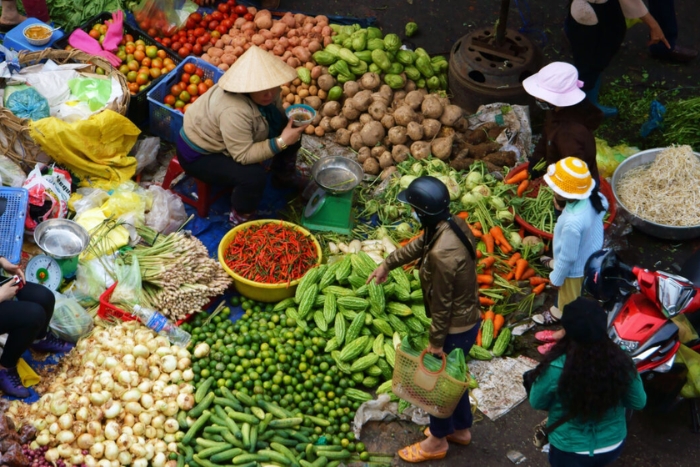
The control of bargaining in Vietnam necessarily goes through a phase of careful comparison. The Vietnamese markets, with their many stalls grouped by specialities, offer ideal conditions for this crucial stage. By observing carefully, you can spot price differences for the same product and set a fair range before beginning to bargain. Experienced travelers recommend discreetly noting reference prices before making any commitments. Some vendors may adjust their prices when they realize you're well-informed. One of the most useful shopping tips in Vietnam is to look for stalls frequented by locals, generally indicators of good value for money. In large markets like Ben Thanh, it's a good idea to compare between different industries, with some being more specialized than others. Observing the Vietnam bargaining phrases used by regulars also provides valuable insights into local usage.
3. Master the art of bargaining
The true art of bargain in Vietnam is based on a subtle balance between firmness and courtesy. Experts recommend a three-step approach: show genuine interest in the product, learn about how it is made, and then gradually address the issue of price. Among the most effective purchasing advice in Vietnam, the technique of preparing exactly the desired amount works in the majority of cases. For valuable items, the group purchase proposal often leads to advantageous conditions.
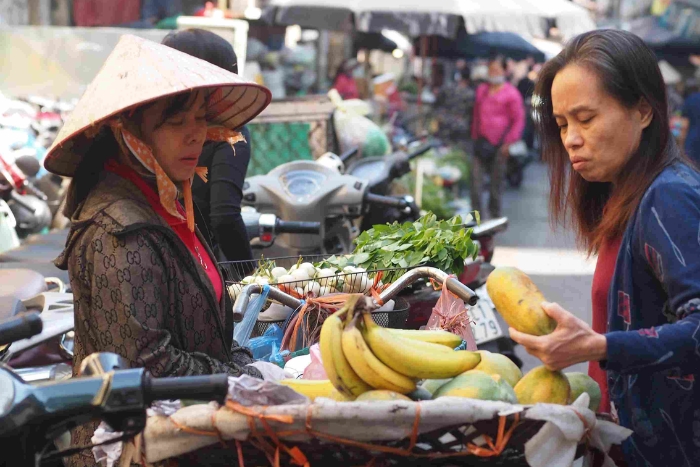
Using key Vietnamese bargaining phrases like "Đắt quá!" (Too expensive!) or "Bớt đi chút nữa" (Reduce a little more) demonstrates a appreciated knowledge of local customs. Shopping in Vietnam becomes as much a cultural experience as a financial one. Experienced salespeople immediately recognize customers who have mastered these codes, which opens the door to more enriching exchanges and sometimes surprises such as small gifts or free teas. A successful bargain usually ends on a cheerful note, building mutual respect between buyer and seller.
III. Some Common Phrases Used for Negotiation
To make the negotiation easier and show your commitment to the process, it is helpful to know a few key phrases in Vietnamese and English. Here is a selection of common phrases and their translations, which can help you get better prices while maintaining a respectful exchange:
- Xin chào! – "Hello!"
- Có giảm giá một chút không? – "Can you lower the price?"
- Cảm ơn, nhưng giá này cao quá! – "Thank you, but this price is too high!"
- Còn giá khác không? – "Is there another price?"
- Giảm thêm chút được không? – "Can you lower it a little more?"
- Tôi chỉ có ít tiền thôi. – "I have a limited budget."
- Mua nhiều có rẻ hơn không? – "If I take several, will the price be lower?"
- Cảm ơn, nhưng tôi phải suy nghĩ thêm. "Thank you, but I have to think about it."
These common phrases are simple yet effective tools for anyone wanting to haggle more confidently in Vietnam. By using them wisely, you show that you respect the local culture and increase your chances of closing a deal that is satisfactory to both parties.
IV. The Art of Bargaining in Vietnam: Practical Tips for Visitors
To bargain in Vietnam successfully, especially with experienced street vendors, it is essential to be well prepared culturally. Before you start bargaining, take time to observe how Vietnamese shoppers interact with vendors. This will provide you with valuable insights into reasonable pricing and current trading codes. Be polite and friendly, compliment the items, and show real interest in the seller’s work.
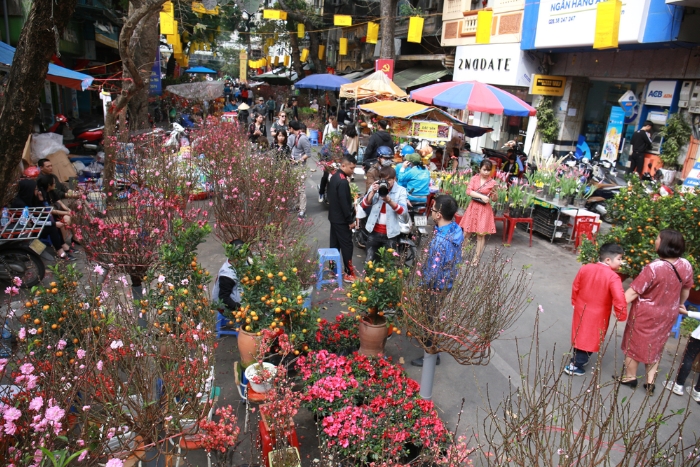
It's also important to set a maximum price for yourself before you start negotiations and be prepared to walk away if the deal doesn't work for you, while always being polite. End each successful transaction with warm thanks, such as "Cảm ơn nhiều". These shopping tips in Vietnam, combined with a basic understanding of local prices, will help you get fair deals, but also provide you with an enriching cultural experience. Keep in mind that the end goal of bargaining in Vietnam is not limited to getting a low price, but to establish a positive human relationship, far beyond the financial aspect.
V. Conclusion
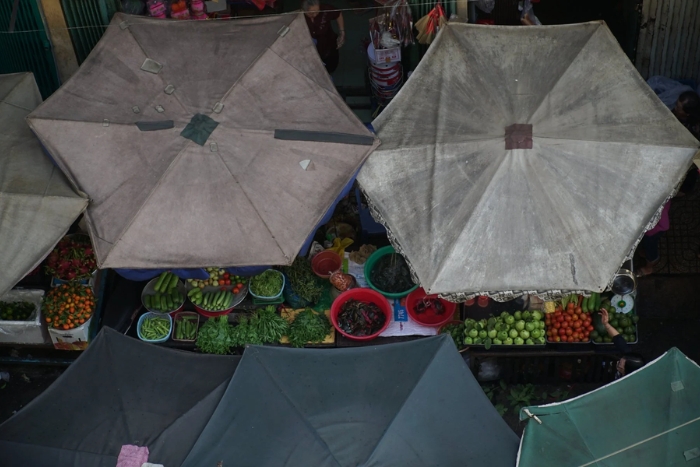
This comprehensive guide, full of practical tips and negotiation tips in Vietnam, is ideal for tourists and anyone who wants to master the art of bargaining in Vietnam. Following these tips will better prepare you for the art of dealing with Vietnamese street vendors and to get the most out of your shopping experiences in this country that is both traditional and modern. If you are looking for an local travel agency in Asia, understanding these cultural specificities will allow you to live enriching and memorable experiences.
Have a good trip and happy bargaining!
> 5-day Itinerary In Tien Giang Vietnam
> Vietnam Travel Guide
> Southern Vietnam Tours
> Vietnam Packages Tours
> Mekong Cruises in Vietnam
In Vietnam, bargaining is common, especially in markets and small shops. To avoid scams, ask your guide for advice on identifying official points of sale. Use Vietnamese dong for everyday purchases, and prefer euros over US dollars when exchanging money. Learning how to bargain in Vietnam is essential: maintain a smiling and respectful attitude, and don’t hesitate to compare prices or walk away if the deal doesn’t suit you.
In Vietnam, certain colors should be avoided depending on cultural and spiritual contexts. Bright red is associated with mourning and misfortune, making it inappropriate for visits to Buddhist temples, where serenity and respect are important. Black, also linked to mourning, should be avoided in these sacred places. White is often associated with mourning as well and may be perceived as inappropriate in places of worship. It is recommended to wear modest and respectful colors such as beige, grey, or light blue when visiting cultural or religious sites.
During your Vietnam trip 2 weeks, it is recommended to leave a tip of around 10% of the bill in restaurants. For exceptional service, a tip of 15 to 20% is appreciated. For tour guides, plan to give between 100,000 and 300,000 VND per day, depending on the quality of the service. Drivers generally receive half that amount. These gestures are a way to show your appreciation for good service.
Related travel guide
Other similar articles
CUSTOMIZABLE BY LOCAL EXPERTS
Personalized trip at the original price!
REFUND GUARANTEE
We believe in our work and promise to give you money back.
GOOD PRICE / QUALITY
95% satisfied more than expected!
24/7 LOCAL SUPPORT
We are always available online to provide assistance at any time.
Most read articles
Autour Asia is highly recommended on
Embracing the mission of "Satisfied more than expected" and providing authentic experiences, we have received numerous recommendations on reputable travel forums:















